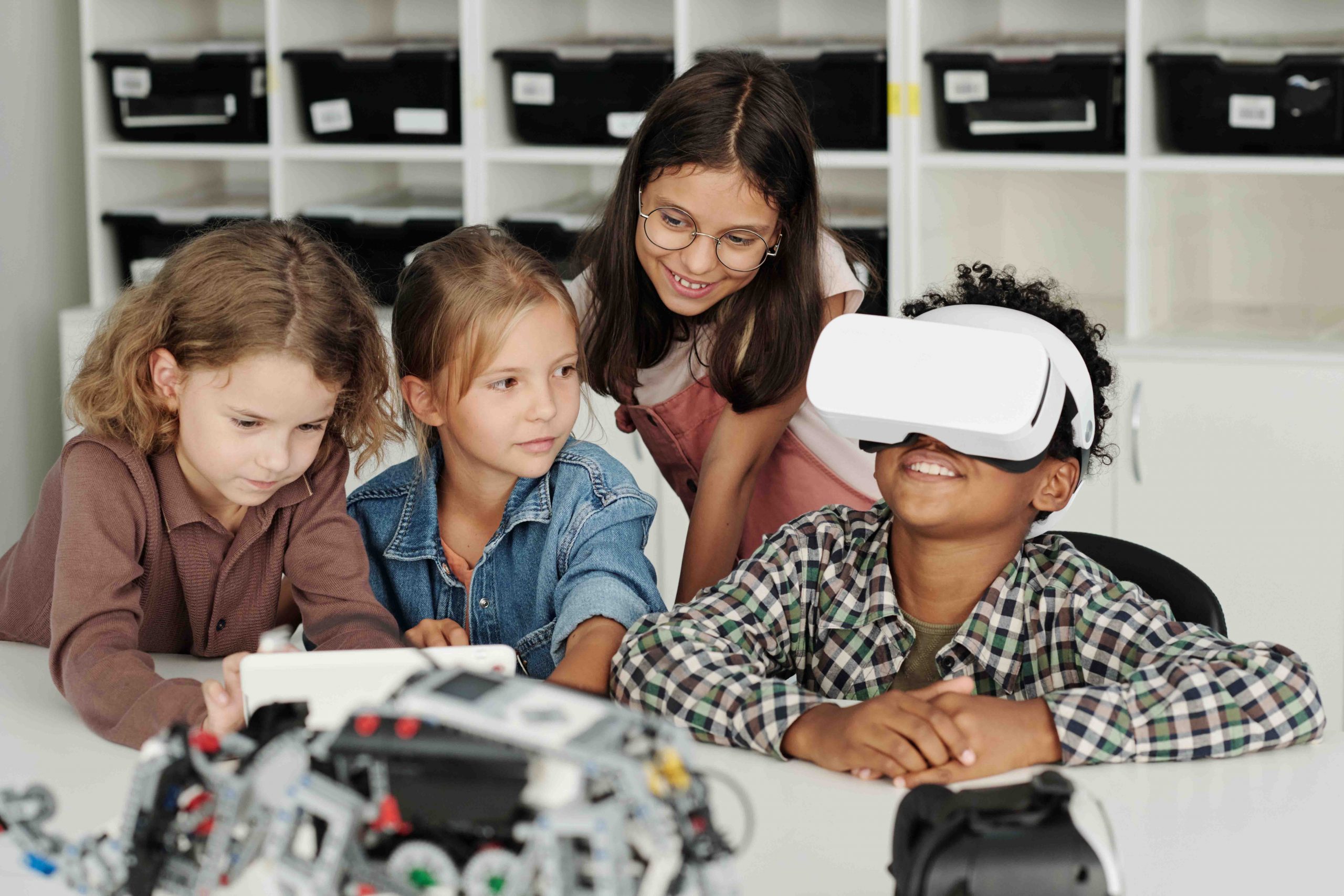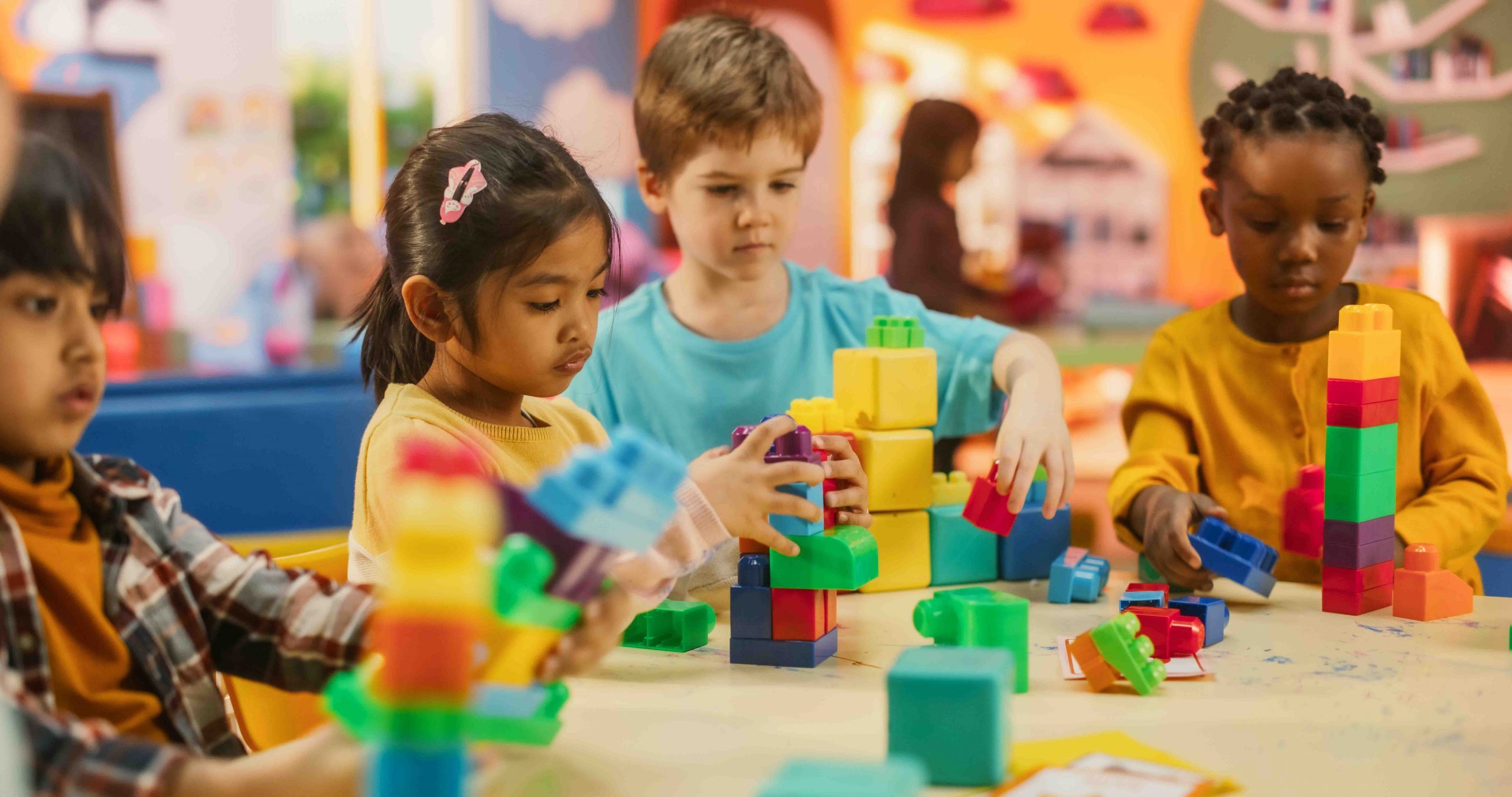Play is the Portal: The Neuroscience of Joyful Learning and Why It Works
Play isn’t a break from learning—it’s how deep learning begins. We unpack the science behind wonder, and why it’s the most powerful tool for shaping future-ready minds.
As a parent, you’ve likely witnessed the contradiction firsthand: Your child, who might struggle to remember multiplication tables after hours of homework, can effortlessly recall intricate details from a game they played once. The complex storylines of their imaginary worlds surpass the sophistication of their formal writing. They’ll experiment endlessly with building blocks but sigh at structured science lessons.
What’s happening here isn’t a failure of discipline or attention. It’s a glimpse into how the human brain is actually wired to learn.
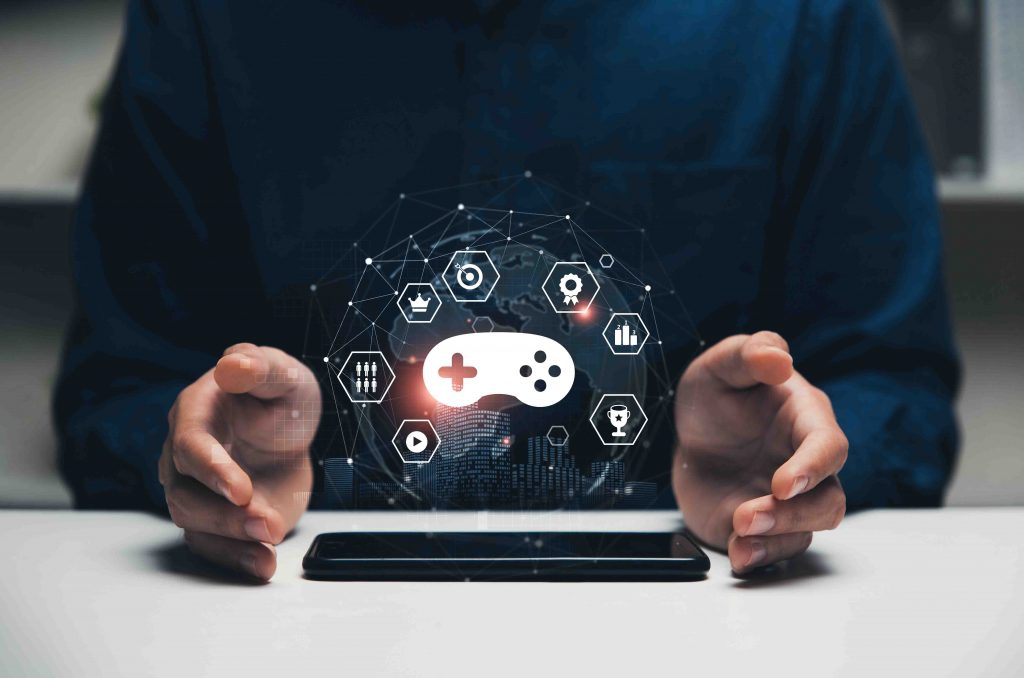
The False Dichotomy
For generations, we’ve maintained an artificial divide between “serious learning” and “just playing.” This division shows up everywhere:
- The diminishing time for recess in schools
- The shift toward academic content in preschools
- The growing schedule of structured activities leaving little time for free play
- The well-meaning parent who asks, “Are they learning anything, or just playing?”
This dichotomy isn’t just misguided—it fundamentally misunderstands how the brain develops and acquires knowledge.
“Play is our brain’s favorite way of learning.” Diane Ackerman
Modern neuroscience has given us unprecedented insights into the learning brain, and the evidence is clear: play isn’t just valuable for learning—it’s the optimal state for the most profound kinds of learning to occur.
The Neurochemistry of Play
When children engage in play, their brains release a powerful cocktail of neurochemicals:
- Dopamine floods the brain during playful exploration, creating a natural reward system for discovery and problem-solving.
- Endorphins generate the pleasure associated with play, creating positive associations with learning challenges.
- Oxytocin surges during social play, strengthening the neural connections formed during collaborative learning.
This neurochemical environment creates ideal conditions for learning that simply cannot be replicated in traditional, stress-laden educational settings.
As neurologist Judy Willis explains: “The state of enjoyment during play creates the precise emotional and biochemical conditions under which the brain best processes and remembers new information.”
Neural Plasticity and Play
The brain’s ability to form new connections—its plasticity—is dramatically enhanced during play. Research using functional MRI technology shows that during free play:
- The prefrontal cortex (executive function) shows increased activity
- Brain-derived neurotrophic factor (BDNF), which promotes neural growth, increases
- Multiple regions of the brain activate simultaneously, creating robust neural networks
Dr. Stuart Brown, founder of the National Institute for Play, notes: “When we play, we are activating the brain in a way that has profound effects on our ability to learn, solve problems, and develop social skills.”
From Wonder to Understanding
Wonder—that state of open curiosity and amazement—isn’t a superficial emotional response. Neuroscientists now understand it as a powerful cognitive state that primes the brain for deep learning.
When children experience wonder during play:
- Their attentional systems become highly focused
- Their brains create stronger memory encoding
- They develop richer, more complex neural networks
This is why a child fascinated by dinosaurs or space can develop vocabulary and conceptual understanding far beyond their grade level without explicit instruction. Their wonder-driven play creates the ultimate learning environment.
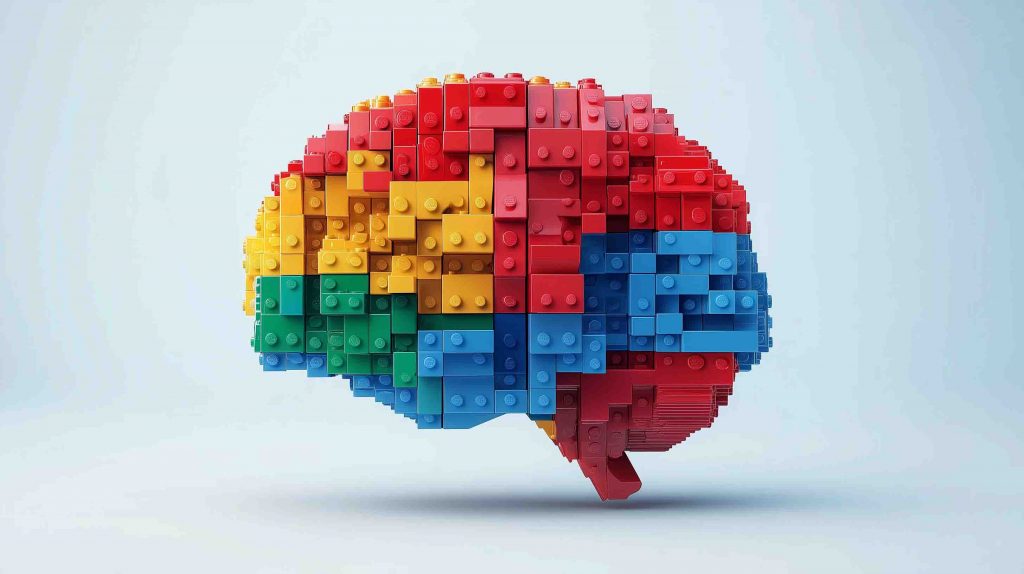
Types of Play and Their Cognitive Benefits
Not all play serves the same cognitive functions. Different types of play develop distinct capabilities essential for future success:
Physical Play
Beyond the obvious benefits for motor skills and health, rough-and-tumble play and physically active games develop:
- Emotional regulation – Learning to modulate excitement and energy
- Risk assessment – Developing intuitive physics through bodily experience
- Spatial awareness – Building neural maps critical for later mathematical reasoning
Research from the University of Washington shows that children who engage in more physical play score higher on executive function tests, which predict academic success better than IQ.
Imaginative Play
When children create pretend scenarios, they’re doing sophisticated cognitive work:
- Counterfactual thinking – Imagining what could be rather than what is
- Narrative construction – Organizing information into meaningful sequences
- Perspective-taking – Mentally inhabiting different viewpoints
A longitudinal study from the University of Minnesota found that the complexity of children’s pretend play at age 4 predicted their creative problem-solving abilities at age 10.
Constructive Play
Building with blocks, creating with art materials, or tinkering with objects develops:
- Spatial reasoning – Mental rotation and visualization skills that predict later STEM success
- Iterative thinking – The process of trying, failing, adjusting, and trying again
- Systems thinking – Understanding how parts relate to wholes
Researchers at MIT have found that the quality of block play in early childhood strongly correlates with mathematical achievement in middle school.
Social Play
Games with rules, collaborative imagination, and social negotiation build:
- Theory of mind – Understanding others’ thoughts and intentions
- Emotional intelligence – Recognizing and responding to others’ feelings
- Collaborative problem-solving – Combining strengths to overcome challenges
Studies show that children who engage in complex social play develop stronger social cognition, which correlates with academic achievement and leadership abilities.
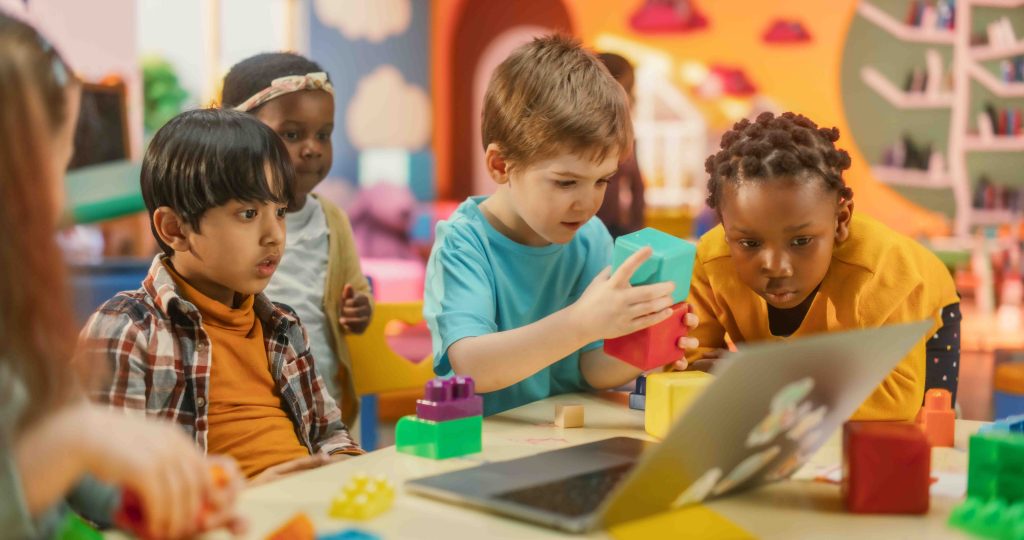
What This Means for Parents and Educators
Understanding the science of play transforms how we approach learning environments:
Create Time and Space for Play
- Protect unstructured time in children’s schedules
- Provide open-ended materials that invite exploration
- Resist the urge to direct or correct during play
- Observe play closely to understand children’s thinking
Recognize Different Types of Learning
- Value the deep learning happening during seemingly “just play”
- Understand that messy, loud, or repetitive play often serves important developmental purposes
- Look for ways to integrate playfulness into more structured learning
Follow the Wonder
- Notice what genuinely fascinates your child
- Provide resources that fuel their specific curiosities
- Ask questions that extend rather than test their thinking
- Share your own wonder about the world
Embrace the Mess
- Accept that meaningful play is rarely tidy or efficient
- Understand that apparent “time-wasting” may be essential processing
- Value the learning process over polished products
How Play Develops Future Fluence
Play naturally cultivates what we call Future Fluence—the confidence and capability to navigate an uncertain future.
When children play, they’re constantly:
- Creating and testing hypotheses
- Adapting to unexpected developments
- Imagining alternative possibilities
- Building on others’ ideas
- Developing intrinsic motivation
As Dr. Alison Gopnik’s research shows, playful learning activates the brain’s “exploration mode” rather than its “exploitation mode.” Exploration mode creates broader, more flexible thinking patterns essential for innovation and adaptation.
Perhaps the most challenging aspect of embracing play-based learning is trusting the process when it doesn’t resemble our conventional understanding of education.
When your child spends hours constructing an elaborate fantasy world instead of completing worksheets, when they’re more interested in mixing baking soda and vinegar than memorizing science vocabulary, when they’d rather take apart a broken appliance than read about how it works—trust that deeper learning is occurring.
Play isn’t just a portal to learning—it’s the most direct route to the capabilities that will matter most in a rapidly changing world.
How do you incorporate play-based learning in your home? Share your experiences in the comments below.
About Future Fluence
Future Fluence offers resources for families and educators seeking to nurture future-ready mindsets.






